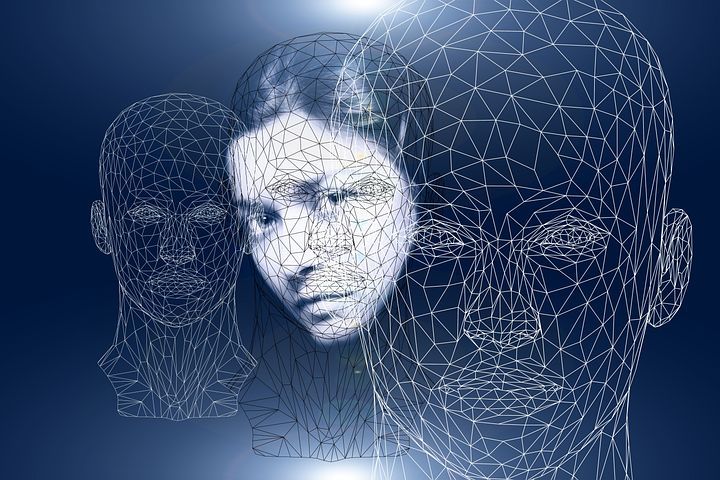Living with understanding individuals
Living with understanding individuals is a very good and a loving experience. When people around you are understanding, they are more likely to listen to your perspective, accept your differences, and offer support when you need it.
Here are some tips for living with understanding individuals:
Practice open communication: Communication is key to building understanding relationships. Be honest and transparent about your thoughts, feelings, and needs. When you share openly, others are more likely to do the same.

source: pixabayShow empathy: Empathy means putting yourself in someone else's shoes and trying to understand their perspective. When you show empathy, you can build deeper connections with others and create a supportive environment.
Be non-judgmental: It's important to avoid making assumptions or judgments about others based on their beliefs or lifestyle choices. Acceptance and understanding of differences can help build a more harmonious living environment.
Respect boundaries: Respecting boundaries is an important part of building trust and respect. Be mindful of others' personal space, time, and privacy.
Practice gratitude: Living with understanding individuals can be a source of joy and inspiration. Show gratitude for the positive things they bring into your life and celebrate their successes.
Remember that building; Understanding relationships takes time and effort. It requires patience, openness, and a willingness to learn and grow together.
Why people with understanding are easy to live with.
People who have a high level of understanding can be easy to live with for several reasons:
They are empathetic: Understanding individuals are often empathetic, which means that they can put themselves in your shoes and understand how you feel. This can make it easier for them to relate to you and be more considerate of your needs.
They are good listeners: Understanding individuals are often good listeners who take the time to hear what you have to say. This can create a more supportive and communicative living environment where everyone feels heard and valued.
They are accepting: Understanding individuals tend to be more accepting of others and their differences. This can create a more harmonious and tolerant living environment where people are free to be themselves without fear of judgment or discrimination.
They are patient: Understanding individuals often have a higher level of patience, which can make them easier to live with. They are less likely to get frustrated or upset over minor issues and can help diffuse tense situations.
They are supportive: Understanding individuals are often supportive of others and their goals. They can be a source of encouragement and motivation, which can make living with them more enjoyable and rewarding.
People who have a high level of understanding tend to possess several qualities that make them easy to live with, including empathy, good listening skills, acceptance, patience, and supportiveness. These qualities can contribute to a more positive and supportive living environment where everyone feels heard, respected, and valued.

source: pixabay
what is understanding?
Understanding is the ability to comprehend the meaning of something. It involves having knowledge or awareness of a situation and being able to interpret and make sense of it.
Understanding can also involve empathy, where we are able to comprehend and relate to the emotions and experiences of others.
How can one understand his fellow human
Understanding your fellow human requires empathy, communication, and an open-minded attitude.
Here are some ways to cultivate a deeper understanding of others:
Listen actively: When someone is speaking to you, give them your full attention and listen actively. This means focusing on what they are saying, without interrupting or judging them. Show that you are listening by asking questions and making eye contact.
Put yourself in their shoes: Empathy is key to understanding others. Try to put yourself in their shoes and imagine how they might be feeling. Consider their perspective and try to understand why they see things the way they do.
Practice open-mindedness: Be open to different perspectives and ideas. Avoid making assumptions or judgments based on preconceived notions. Keep an open mind and be willing to learn from others.

source: pixabayAsk questions: Ask questions to clarify what someone means and to gain a deeper understanding of their thoughts and feelings.
Show respect: Show respect for others, their opinions, and their feelings. This includes respecting their boundaries and being mindful of their needs.
Seek common ground: Look for areas of agreement or shared values. Focus on finding common ground rather than differences, and work together to find solutions to problems.
Understanding others requires active listening, empathy, open-mindedness, respectful communication, and a willingness to seek common ground. By practicing these skills, you can cultivate a deeper understanding of your fellow human and build stronger relationships based on mutual respect and empathy.
why do people not understand each other?
There are several reasons why people may not understand each other, including:
Different backgrounds and experiences: People come from different backgrounds and have different experiences, which can affect how they view the world and interpret information. This can create misunderstandings and miscommunications.
Different communication styles: People communicate differently, using different words, tones, and body language. This can lead to misunderstandings if one person is interpreting the other's communication style in a different way.
Lack of empathy: Empathy is the ability to understand and relate to the feelings and experiences of others. If someone lacks empathy, they may struggle to understand why someone feels a certain way or why they are behaving in a certain way.
Emotional barriers: Strong emotions can sometimes cloud our judgment and prevent us from understanding others. When we are upset or emotional, we may be less likely to listen and more likely to misunderstand or misinterpret information.

source: pixabay
Can two individuals live together without understanding each other?
It is possible for two individuals to live together without fully understanding each other, but it can make their living situation challenging and potentially problematic. Lack of understanding can lead to misunderstandings, conflicts, and tension in the relationship.
Living with someone who you don't understand can create communication barriers and lead to frustration and resentment. It can also make it difficult to work through disagreements and find common ground. Without a basic level of understanding, it can be challenging to build trust and intimacy in the relationship.
That being said, some people may be able to tolerate a lack of understanding in their living situation by maintaining clear boundaries and expectations, or by simply accepting that they will not always see eye-to-eye with their roommate or partner. However, this approach may not work for everyone and may lead to a less satisfying and fulfilling living situation.
In general, it is important to have a certain level of understanding and communication in any arrangement in order to build a healthy and positive relationship.
Living in peace with one another
Living in peace with one another involves building a harmonious and respectful relationship with those around us.
Here are some key steps that can help foster peace in your interactions with others:
Communicate effectively: Effective communication is key to building healthy relationships. Be clear and honest in your communication, and actively listen to what others have to say.
Respect differences: Everyone is unique, with different backgrounds, beliefs, and opinions. Respect these differences and avoid judging or discriminating against others based on these differences.
Show kindness: Small acts of kindness can go a long way in building positive relationships. Show empathy, be generous with your time, and offer help when needed.
Build trust: Trust is essential to any healthy relationship. Be reliable, keep your promises, and avoid betraying the trust of others.
Resolve conflicts peacefully: Conflicts are bound to arise, but it's important to resolve them peacefully. Focus on finding solutions that work for everyone, rather than "winning" the argument.
Cultivate a positive mindset: Focus on positivity, gratitude, and hope. Avoid negative self-talk or criticizing others, and instead focus on building a positive and peaceful environment.

source: pixabay
How to live in peace with your fellow friend
Living in peace with a friend involves building a healthy and respectful relationship with them. Here are some tips to help you maintain a peaceful friendship:
Communicate openly and honestly: Open communication is essential to building a strong friendship. Be honest with your friend about how you feel, and encourage them to do the same. Listen carefully to their thoughts and concerns, and work together to find solutions to any problems that arise.
Show empathy: Try to understand your friend's point of view and respect their feelings. When they're upset, be supportive and offer a listening ear. Avoid being judgmental or dismissive of their emotions.
Respect boundaries: Everyone has different boundaries and limits, so it's important to respect your friend's personal space and privacy. Avoid pushing them beyond their comfort zone, and be mindful of their feelings and needs.
Be reliable and trustworthy: A key component of any strong friendship is trust. Be dependable and keep your promises, and avoid betraying your friend's trust by sharing their personal information or breaking confidences.
Avoid conflicts: While disagreements are natural, try to avoid unnecessary conflicts with your friend. Be patient and understanding, and focus on finding solutions that work for both of you.
Celebrate their successes: When your friend accomplishes something great, celebrate their success and show your support. Offer congratulations, listen to their stories, and be genuinely happy for their achievements.
Forgive and move on: Everyone makes mistakes, so it's important to forgive your friend when they do. Learn from the experience, communicate openly about what happened, and work together to move forward and strengthen your friendship.

source
Peace and understanding
Peace and understanding are closely linked concepts. When people strive to understand each other's perspectives, they can build more peaceful relationships and foster a greater sense of mutual respect and empathy.
Understanding involves listening to others and trying to see things from their point of view. When we take the time to understand someone, we are better able to communicate with them and avoid misunderstandings or conflicts. This, in turn, can lead to greater trust and respect between individuals.
Peace, on the other hand, refers to a state of harmony and cooperation between people. When people work towards building peaceful relationships, they are able to create a safe and supportive environment where everyone feels valued and respected.
When we combine the principles of understanding and peace, we can create a powerful force for positive change in our communities and the world at large. By striving to understand each other and promoting peaceful interactions, we can build stronger, more connected communities, and help create a more just and equitable society for all.
Conclusion
In conclusion, understanding and living in peace with others is Important in building healthy relationships, both in our personal and professional lives. To achieve this, it is important to practice empathy, effective communication, respect for differences, kindness, trust-building, peaceful conflict resolution, and a positive mindset. When we make a conscious effort to understand others and promote peaceful interactions, we can create a more just and equitable world for all.

source: pixabay